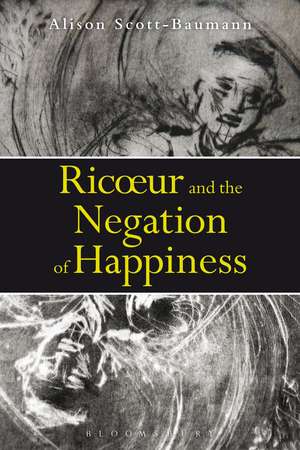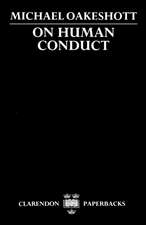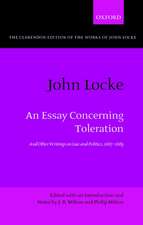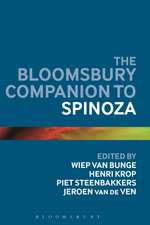Ricoeur and the Negation of Happiness
Autor Dr Alison Scott-Baumannen Limba Engleză Paperback – 23 oct 2013
| Toate formatele și edițiile | Preț | Express |
|---|---|---|
| Paperback (1) | 218.00 lei 6-8 săpt. | |
| Bloomsbury Publishing – 23 oct 2013 | 218.00 lei 6-8 săpt. | |
| Hardback (1) | 772.98 lei 6-8 săpt. | |
| Bloomsbury Publishing – 23 oct 2013 | 772.98 lei 6-8 săpt. |
Preț: 218.00 lei
Preț vechi: 244.93 lei
-11% Nou
Puncte Express: 327
Preț estimativ în valută:
41.71€ • 43.66$ • 34.72£
41.71€ • 43.66$ • 34.72£
Carte tipărită la comandă
Livrare economică 01-15 aprilie
Preluare comenzi: 021 569.72.76
Specificații
ISBN-13: 9781780936369
ISBN-10: 1780936362
Pagini: 200
Dimensiuni: 156 x 234 x 13 mm
Greutate: 0.36 kg
Ediția:New.
Editura: Bloomsbury Publishing
Colecția Bloomsbury Academic
Locul publicării:London, United Kingdom
ISBN-10: 1780936362
Pagini: 200
Dimensiuni: 156 x 234 x 13 mm
Greutate: 0.36 kg
Ediția:New.
Editura: Bloomsbury Publishing
Colecția Bloomsbury Academic
Locul publicării:London, United Kingdom
Caracteristici
First exploration of Ricoeur's work on negation, drawing on unexamined materials from the archives
Notă biografică
Alison Scott-Baumann is Professor of Society, Philosophy and Belief at Derby University, Visiting Research Fellow at Lancaster University, UK and Leverhulme Emeritus Research Fellow 2012-13. She is a member of the Fonds Ricour Conseil Scientifique.
Cuprins
AcknowledgementsAbbreviations and Bibliographic NotePrologueIntroduction1. Reading Ricoeur on Negation 2. The Negation Papers3. Heraclitus, Parmenides and Plato: Before the Logic of Negation4. Hegel's Dialectical Dominance5. Kant: Negation in a Philosophy of Limits6. Affirmative Negatives: Nietzsche, Sartre, Deleuze, Murdoch - and Plotinus 7. Happiness - and you, what will you do?EpilogueNotesBibliographyIndex
Recenzii
Here we have the more than welcome sequel to Alison Scott-Baumann's highly regarded and in many ways path-breaking study Ricoeur and the Hermeneutics of Suspicion. It takes us further in two directions. On the one hand it treats a topic, that of negation in its various forms, that was central to Ricoeur's philosophical interests early and late. On the other it proceeds by periodically expanding that focus to issues of ethical, cultural, and socio-political concern that have a direct and powerful contemporary relevance. This book is the product of original scholarship, much hard thinking, and a good deal of shrewdly applied practical as well as theoretical wisdom.
Highly readable, relaxed, occasionally almost colloquial style, markedly different from much philosophical discourse that can be forbiddingly abstract and cryptic even for expert readers [.] Alison Scott-Baumann has made a useful contribution not just to Ricoeur scholarship, but precisely to the philosophical-activism that she embraces.
Highly readable, relaxed, occasionally almost colloquial style, markedly different from much philosophical discourse that can be forbiddingly abstract and cryptic even for expert readers [.] Alison Scott-Baumann has made a useful contribution not just to Ricoeur scholarship, but precisely to the philosophical-activism that she embraces.


















